
The Centre Party, formerly the Farmer's Party, is an agrarian political party in Norway.

Venstre, full name Venstre, Danmarks Liberale Parti, is a conservative-liberal, agrarian political party in Denmark. Founded as part of a peasants' movement against the landed aristocracy, today it espouses an economically liberal, pro-free-market ideology.
The Conservative People's Party, also known as The Conservatives is a centre-right political party in Denmark. The party is a member of the International Democracy Union and the European People's Party.
The Social Democrats is a social democratic political party in Denmark. A member of the Party of European Socialists, the Social Democrats have 50 out of 179 members of the Danish parliament, Folketing, and three out of fourteen MEPs elected from Denmark.
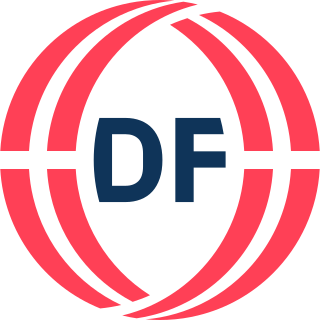
The Danish People's Party is a nationalist and right-wing populist political party in Denmark. It was formed in 1995 by former members of the Progress Party (FrP).
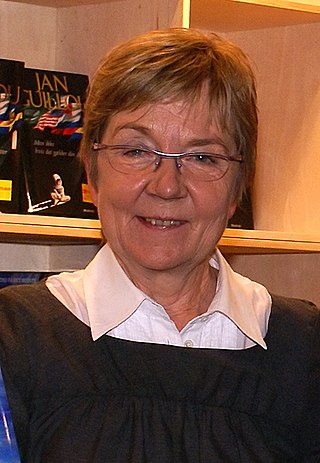
Marianne Bruus Jelved is a Danish politician, who is a member of the Folketing for the Danish Social Liberal Party. She was elected into parliament in the 1994 Danish general election and had previously sat in parliament from 1987 to 1993. She is a former Minister of Economic Affairs, Nordic Cooperation, Culture and Ecclesiastical Affairs.

Carl Theodor Zahle, was a Danish lawyer and politician who served as Prime Minister of Denmark from 1909 to 1910 and again from 1913 to 1920. In 1895, he was elected as a member of the lower chamber of the Danish parliament, the Folketing, for the Liberal Party (Venstrereformpartiet). A campaigner for peace, in 1905 he co-founded the Social Liberal Party together with other disgruntled members of Venstrereformpartiet. He continued on as a member of the Folketinget for Det Radikale Venstre until 1928, when he became a member of the upper chamber of parliament (Landsting). In 1929 he became Justice Minister, a post which he held until 1935.
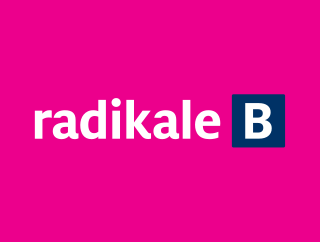
The Danish Social Liberal Party is a social-liberal political party in Denmark. The party was founded as a split from the Venstre Reform Party in 1905.

This article gives an overview of liberalism and radicalism in Denmark. It is limited to liberal and radical egalitarian parties with substantial support, mainly proved by having had a representation in the parliament. The sign ⇒ denotes another party in that scheme. For inclusion in this scheme it isn't necessary so that parties labeled themselves as a liberal party.
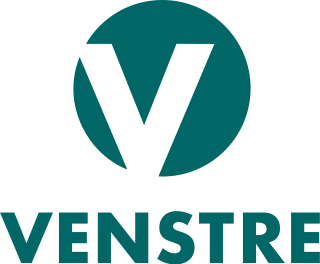
The Liberal Party is a social liberal political party in Norway. It was founded in 1884 and is the oldest political party in Norway. It is positioned in the centre on the political spectrum, and it is a liberal party which has over the time enacted reforms such as parliamentarism, freedom of religion, universal suffrage, and state schooling.
Prostitution in Denmark was partly decriminalised in 1999, based partly on the premise that it was easier to police a legal trade than an illegal one. Third-party activities, such as profiting from brothel administration and other forms of procuring, remain illegal activities in Denmark, as do pimping and prostitution of minors.
The Liberal Alliance is a classical liberal and right-libertarian political party in Denmark. The party is a component of the centre-right bloc in Danish politics. The party's platform is based upon economic liberalism, promotion of tax cuts and reduction of welfare programmes, and a critical, oppositional stance towards European integration.

The Greens was a Danish green party. It was founded in October 1983. It first participated in the 1985 local elections. It was a founding member of the European Green Party.
The Nordic agrarian parties, also referred to as Scandinavian agrarian parties or agrarian liberal parties, are agrarian political parties that belong to a political tradition particular to the Nordic countries. Positioning themselves in the centre of the political spectrum, but fulfilling roles distinctive to Nordic countries, they remain hard to classify by conventional political ideology.
The Free-minded Liberal Party was a political party in Norway founded in 1909 by the conservative-liberal faction of the Liberal Party. The party cooperated closely with the Conservative Party and participated in several short-lived governments, including two headed by Free-minded Prime Ministers. In the 1930s the party changed its name to the Free-minded People's Party and initiated cooperation with nationalist groups. The party contested its last election in 1936, and was not reorganised in 1945.
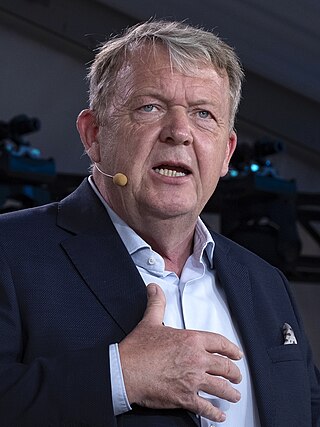
Lars Løkke Rasmussen is a Danish politician who has served as Minister of Foreign Affairs since 2022. He previously served as the 25th Prime Minister of Denmark from 2009 to 2011 and again from 2015 to 2019. He was the leader of the liberal Venstre party from 2009 to 2019. Rasmussen has been a member of the Folketing since 21 September 1994. He also served as County Mayor of Frederiksborg County from 1998 to 2001. Subsequently, he was the Interior and Health Minister from 27 November 2001 to 23 November 2007 as part of Anders Fogh Rasmussen's first and second cabinets, and then Minister of Finance from 23 November 2007 to April 2009 as part of Anders Fogh Rasmussen's third cabinet. On 5 April 2009, he succeeded Anders Fogh Rasmussen as prime minister following the latter's appointment as Secretary General of NATO.In the 2011 general election, the government lost its parliamentary majority and Rasmussen tendered the government's resignation to Queen Margrethe II. He was succeeded by Helle Thorning-Schmidt of the Social Democrats on 3 October 2011. In the 2015 general election, the right-wing parties regained a majority in the Folketing. Rasmussen again became prime minister and formed his second cabinet in the same month. This cabinet was made up exclusively of Venstre members, but in November 2016 he was pressured to also include members of Liberal Alliance and Conservative People's Party, forming his third cabinet.On 6 June 2019, he resigned from his position as prime minister after a general election, in which his government was defeated. However, he continued to lead a caretaker government until a new government was formed and sworn in. This was completed on 27 June 2019 and Rasmussen was succeeded as prime minister by Mette Frederiksen. He resigned as the chairman of Venstre in August 2019, and left the party in January 2021. He subsequently formed the Moderates, which campaigned on ending bloc politics, and won 16 seats in the 2022 Danish general election.

Morten Løkkegaard is a Danish politician who has served as a Member of the European Parliament (MEP) and the Danish Parliament intermittently since 2009. He has held his current position as a member of the European Parliament since 2016. He represents the Venstre political party and is affiliated with the Alliance of Liberals and Democrats for Europe.

The politics of Denmark take place within the framework of a parliamentary representative democracy, a constitutional monarchy and a decentralised unitary state in which the monarch of Denmark, King Frederik X, is the head of state. Denmark is a nation state. Danish politics and governance are characterized by a common striving for broad consensus on important issues, within both the political community and society as a whole.
Agrarian parties of Finland were and their successors are a typical part of the development in the Nordic countries, which has been based on milk production in distant and relatively sparsely populated areas. The state support for small peasants was one of the essential economic reforms in the newly independent Finland just after the declaration of independence in 1917 and fierce civil war of 1918. Already in 1917 the land reform, which had been discussed for more than ten years seriously in the parliament was executed. The tendency toward increasing small farming continued in various other reforms like Lex Kallio, which made it possible for the small peasants to achieve more lands. This made parliamentary life fragile in Finland as the reforms created mistrust between the Agrarian League lea mainly by Kyösti Kallio and the National Coalition party, which favoured bigger land-owners. Between the world wars strong agrarian movements were not only in the Nordic countries, but also in Bulgaria.











